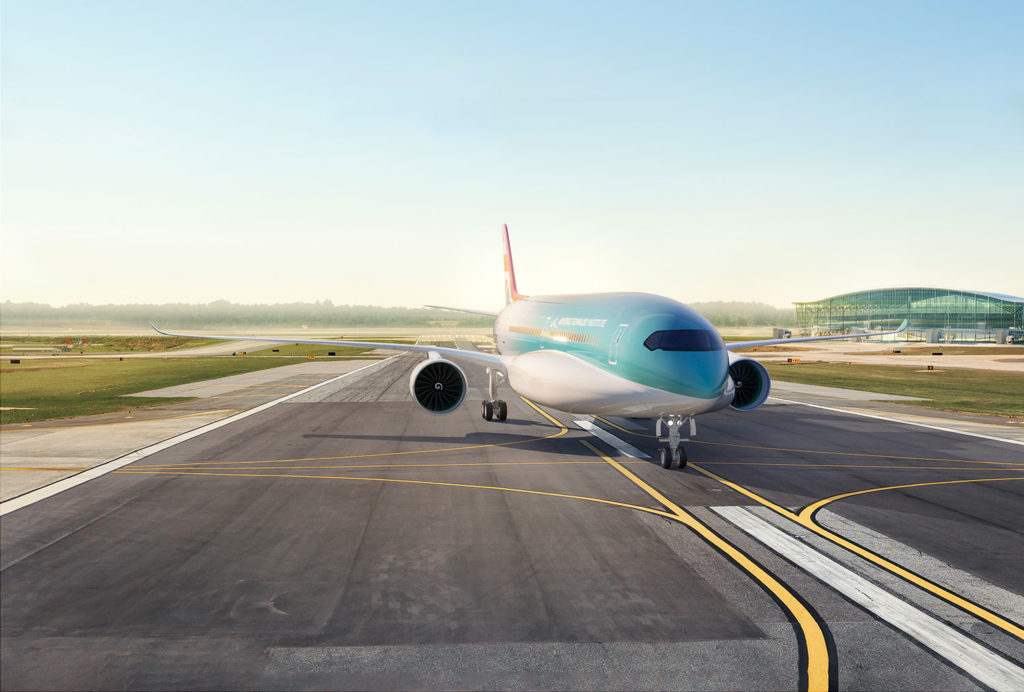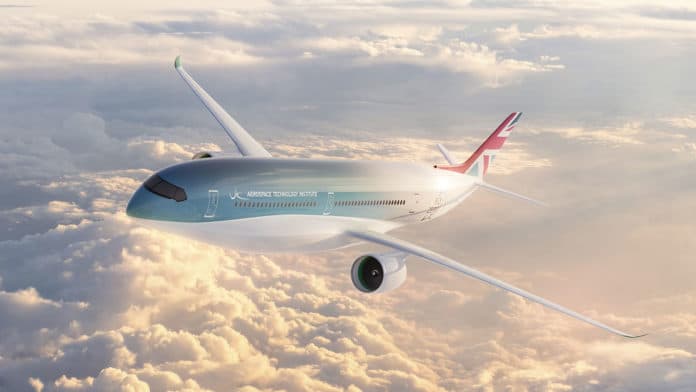The FlyZero project, led by the Aerospace Technology Institute and backed by the UK Government, has developed a concept for a midsize aircraft powered by liquid hydrogen. FlyZero is a one-of-a-kind research project aiming to realize zero-carbon emission commercial aviation by the end of the decade.
The liquid hydrogen airliner is capable of flying 279 passengers halfway around the world without a stop or anywhere in the world with just one stop to refuel. This means that a zero-carbon, non-stop flight could be operated between London and San Francisco, or that passengers could fly around the world from London to San Francisco, Auckland, New Zealand with just one stop, at the same speed and comfort as today’s aircraft.
The concept demonstrates the huge potential of green liquid hydrogen for air travel, not just regionally or in short-haul flights but for global connectivity. Liquid hydrogen is a lightweight fuel, which has three times the energy of kerosene and sixty times the energy of batteries per kilogram and emits no CO2 when burned.

The design of a larger, longer-range aircraft also allows for the concentration of new infrastructure to fewer international airports, accelerating the deployment of a global network of zero-carbon emission flights and combating emissions from long-haul flights.
Big technological challenges exist to realize green liquid hydrogen-powered flight, but there is a growing incentive and reward involved in resolving these. And with other sectors also moving towards hydrogen energy, an increased demand is expected to lead to lower supply costs. A new generation of highly efficient hydrogen-powered aircraft with low fuel costs is forecast to have superior operating economics than conventional aircraft from the mid-2030s onwards.
Several companies are currently involved in the development of hydrogen airliners. For example, British-American ZeroAvia is developing a 76-seat hydrogen-electric aircraft, and Germany’s H2Fly and Deutsche Aircraft are developing a 40-seat aircraft.
Another technology with the potential to decarbonize flying is sustainable aviation fuel, a low-carbon fuel made from waste materials.
“At a time of global focus on tackling climate change, our midsize concept sets out a truly revolutionary vision for the future of global air travel, keeping families, businesses and nations connected without the carbon footprint,” FlyZero Project Director Chris Gear said. “This new dawn for aviation brings with it real opportunities for the UK aerospace sector to secure market share, highly skilled jobs, and inward investment while helping to meet the UK’s commitments to fight climate change.”
